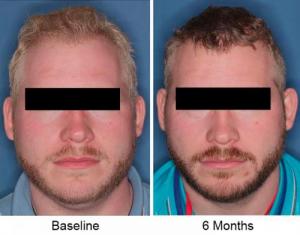Health
Scientists identify unique subtype of eczema linked to food allergy
Atopic dermatitis, a common inflammatory skin condition also known as allergic eczema, affects nearly 20 percent of children, 30 percent of whom also have food allergies. Scientists have now found that children with both atopic dermatitis and food allergy have structural and molecular differences in the top layers of healthy-looking skin near the eczema lesions, whereas children with atopic dermatitis alone do not. Defining these differences may help identify children at elevated risk for developing food allergies, according to research today.
- Read more
- 329 reads
Nitisinone increases melanin in people with albinism

- Read more
- 435 reads
Long periods of sedentary behavior may increase cardiovascular risk in older women
A new study has found that the longer older women sit or lay down during the course of a day—and the longer the individual periods of uninterrupted sitting—the greater their risk of cardiovascular diseases such as heart disease and stroke. But reducing their sedentary time by just an hour a day appears to lower the risk of cardiovascular diseases by 12 percent—and for heart disease alone, by a dramatic 26 percent, the research found. The study was funded by the National Heart, Lung, and Blood Institute (NHLBI), part of the National Institutes of Health.
- Read more
- 356 reads
Study unveils a blueprint for treating a deadly brain tumor
In a study of mice and human brain tumors researchers at the University of the Michigan, Ann Arbor, searched for new treatments by exploring the reasons why some patients with gliomas live remarkably longer than others. The results suggested that certain patients’ tumor cells are less aggressive and much better at repairing DNA than others but are difficult to kill with radiation. The researchers then showed that combining radiation therapy with cancer drugs designed to block DNA repair may be an effective treatment strategy.
- Read more
- 340 reads
Monthly buprenorphine injections effective for opioid use disorders
A newly published study suggests the long-acting buprenorphine formulation BUP-XR is more effective than placebo in helping patients struggling with addiction to opioids. BUP-XR is a monthly extended-release injection.
- Read more
- 357 reads
Neuromelanin-sensitive MRI identified as a potential biomarker for psychosis
Researchers have shown that a type of magnetic resonance imaging — called neuromelanin-sensitive MRI (NM-MRI) — is a potential biomarker for psychosis. NM-MRI signal was found to be a marker of dopamine function in people with schizophrenia and an indicator of the severity of psychotic symptoms in people with this mental illness. The study, funded by the National Institute of Mental Health (NIMH), part of the National Institutes of Health.
- Read more
- 376 reads
New protocol could ease diagnosis of bacterial infections in infants
A new protocol could help emergency room physicians to rule out life-threatening bacterial infections among infants up to 2 months of age who have fevers, potentially eliminating the need for spinal taps, unnecessary antibiotic treatments or expensive hospital stays. Researchers from the Pediatric Emergency Care Applied Research Network (PECARN) developed the protocol from a study of more than 1,800 infants seen at 26 emergency departments around the country.
- Read more
- 354 reads
UNICEF Executive Director Henrietta Fore's remarks at Munich Security Conference: Town Hall Event: “Update on Ebola in the DRC & Beyond”
"Once again, we’re facing an outbreak of Ebola — the 10th in the DRC.

https://www.unicef.org/press-releases/unicef-executive-director-henriett...
內湖道館 2021 鄭美雲
- Read more
- 344 reads
New WHO-ITU standard aims to prevent hearing loss among 1.1 billion young people
Nearly 50% of people aged 12-35 years – or 1.1 billion young people – are at risk of hearing loss due to prolonged and excessive exposure to loud sounds, including music they listen to through personal audio devices. Ahead of World Hearing Day (3 March), the World Health Organization (WHO) and the International Telecommunication Union (ITU) have issued a new international standard for the manufacture and use of these devices, which include smartphones and audio players, to make them safer for listening.
- Read more
- 434 reads
Human Rights
Fostering a More Humane World: The 28th Eurasian Economic Summi

Conscience, Hope, and Action: Keys to Global Peace and Sustainability

Ringing FOWPAL’s Peace Bell for the World:Nobel Peace Prize Laureates’ Visions and Actions

Protecting the World’s Cultural Diversity for a Sustainable Future

Puppet Show I International Friendship Day 2020


